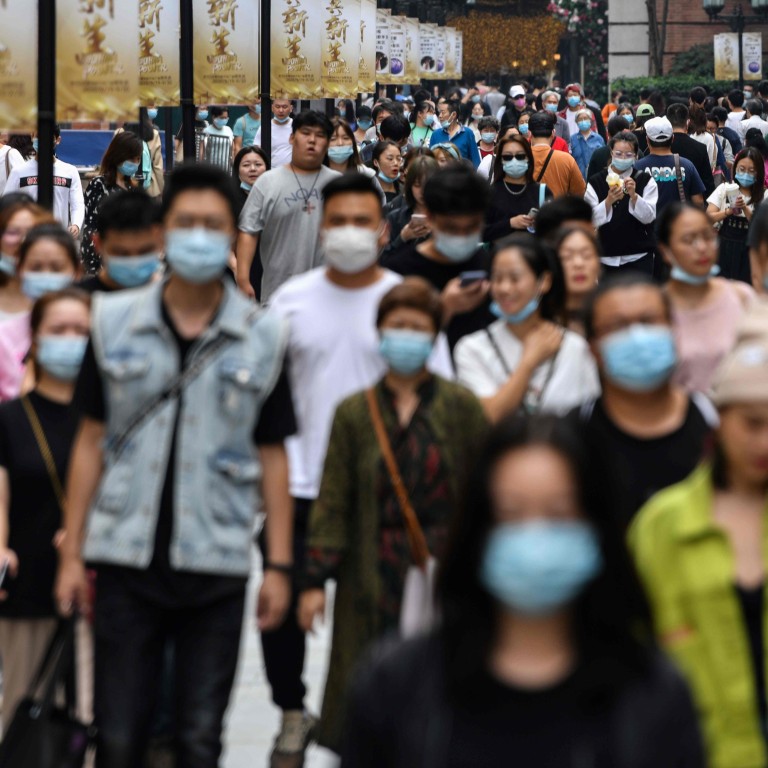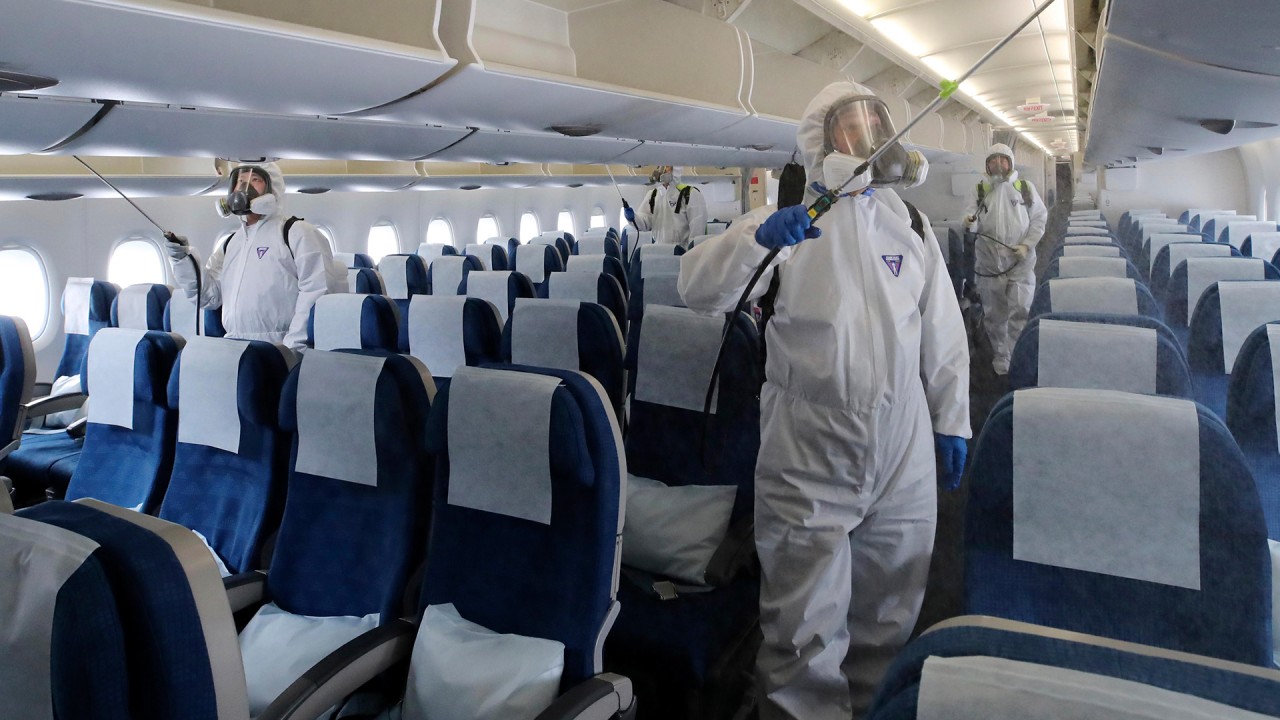
Coronavirus: WHO waits for China to approve pandemic origins investigators
- It’s up to Beijing to decide on list of team candidates, WHO health emergencies chief says
- Mission’s legitimacy rests on who is involved and how it will be run, observers say
WHO health emergencies programme executive director Mike Ryan told a special meeting of the organisation’s executive board on Monday that the WHO had selected expert candidates from around the world for the mission and it was now up to Beijing to say who would be on the international team and when they would enter China.
“A list of candidates has been submitted to the Chinese authorities for their consideration and for next steps in order to deploy that team,” Ryan told the advisory group of member state representatives, without saying when the list was sent.

06:03
Travellers who prepare should be able to start flying again despite the pandemic, says IATA official
In early August, two WHO experts worked with Chinese health officials and scientists to lay the groundwork for the investigation. A bigger mission of international experts had been expected to start its investigation in the central Chinese city of Wuhan – the outbreak’s first epicentre – “a matter of weeks” after that, the WHO said in July.
At Monday’s meeting, representatives from the United States, the European Union, and Australia called on the WHO to send the team and share more details about the mission.
“Transparency around this work is critical, we are keen to see further information on the membership of the international team and its programme of work,” Australian associate health secretary and WHO executive board member Caroline Edwards said.

01:18
WHO chief slams Pompeo’s comment that WHO is 'co-opted' by China
But observers said the WHO could not send a team into a member state without its permission.
“If, therefore, China would condition entry of an expert group on vetting the expert list, then from an international legal perspective, the WHO’s hands are bound,” said Ayelet Berman, senior research fellow at the Centre for International Law at the National University Singapore.
Analysts said the mission’s legitimacy would depend on who was involved and how it was run, particularly after criticism that the WHO pandered to China during the early weeks of the outbreak.
The United States has blamed the spread of Covid-19 on the WHO’s reliance on early information from Beijing, which took several weeks after the disease emerged to confirm human-to-human transmission.
China has said it kept in close contact with the agency throughout the pandemic, with representative Zhang Yang of China’s National Health Commission on Monday telling the executive board: “China has always been transparent and responsible to fulfil our international obligations.”
Covid-19 vaccine may not be ready until the end of 2021, WHO says
The WHO’s lack of authority to force through its list of experts as final means “deference to Chinese authorities is hard-wired into this mission”, according to David Fidler, an adjunct senior fellow for global health at the Council on Foreign Relations in the US.
“Given the geopolitics of the pandemic, this back and forth between the WHO and China will refuel criticism of both the WHO and China and darken the cloud already hanging over the organisation and its relationship with the Chinese government,” he said.
John Lee, a senior fellow at the United States Studies Centre at the University of Sydney, said that if the mission was not seen as credible, it could affect the WHO’s overall standing.
Australia, for example, would want to see that “the investigative experts are acceptable by the majority of nations”, said Lee, who is also a senior fellow at the Hudson Institute in the US.
1 in 10 people worldwide may have been infected with Covid-19, WHO estimates
Earlier this year, Beijing resisted calls from the US and Australia for an inquiry into the origins of the virus, which it saw as an effort to blame China for the pandemic.
But Beijing eventually supported a resolution passed by the WHO’s governing body calling for the scientific inquiry.
Wang Yiwei, director of the Institute of International Affairs and Centre for European Studies at Renmin University, said the expert team should be decided by the WHO “based on professional background” to “depoliticise” the investigation.
“There is a Chinese slogan, seek truth from the facts, however some Americans or maybe Western governments want to blame China, want to make the conclusion first and then try to find the facts to match,” Wang said.
Such concerns could affect the way Beijing looks at the international team, according to Dominic Meagher, a visiting fellow at the Australian National University in Canberra.
“They would want to trust the experts were not pursuing a political agenda ... that whoever does the investigation is not going to stray outside its terms,” said Meagher, who is researching China’s response to Covid-19.

